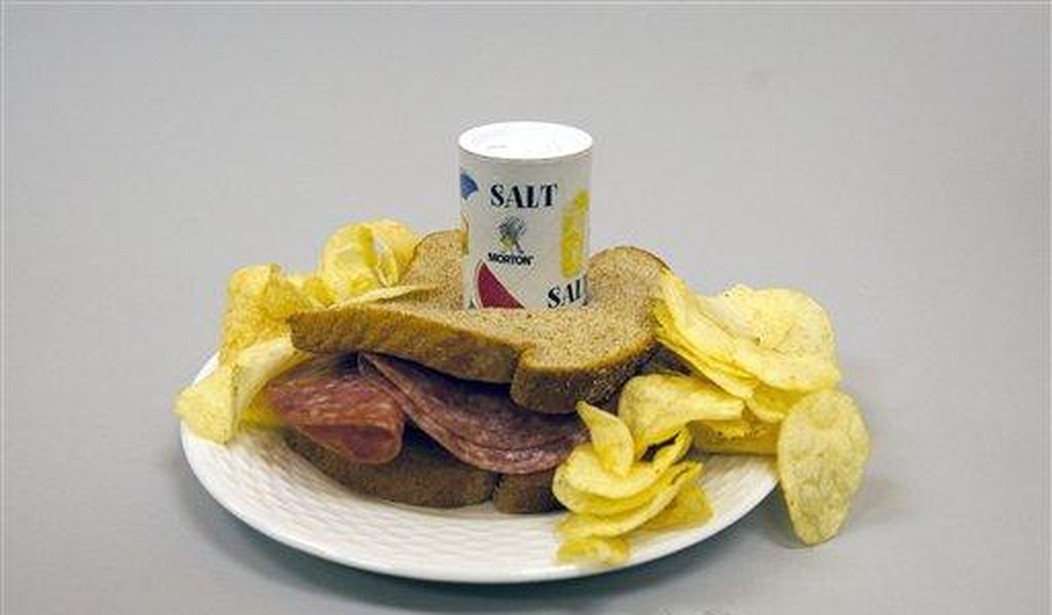Given all of the time that the FDA spends holding meetings and issuing conflicting advice about face masks, vaccines and COVID drugs these days, you’d think they wouldn’t have much room on their plate for even more annoying scolding. Well, that just goes to show how wrong you can be. The Food and Drug Administration has released new guidelines that advise food manufacturers and restaurants to significantly reduce the amount of salt that goes into the food products we purchase and consume. In fact, they’re looking for a more than ten percent reduction in less than three years. What’s that going to do for your health? Apparently, it’s important in terms of combatting heart disease. (NBC News)
The Food and Drug Administration is asking food manufacturers and restaurants to cut the salt in their products over the coming 2½ years, hoping to reduce Americans’ overall sodium intake by 12 percent.
The sweeping recommendation, announced Wednesday, is expected to cover a wide variety of foods — from chain restaurant meals to processed food on grocery store shelves and even baby food.
“What we’d like to see is the food industry gradually lower the sodium content” in the most common foods, Dr. Janet Woodcock, the acting FDA commissioner, told NBC News.
Lowering your salt intake allegedly reduces hypertension, heart disease and stroke. Those are certainly worthy goals. But do you know what else is reduced when you start cutting back steeply on salt? Taste. It was rather ironic that I read this article this morning just as I was peeling a hard-boiled egg with a salt shaker next to me. I’m not sure I could actually eat one of those without salt unless I was lost in the woods or something.
The FDA estimates that the average person in the U.S. consumes about 3,400 mg of sodium per day. Their recommended maximum is 2,300. An adjustment by food manufacturers and restaurants on the scale of what’s being asked for would bring the average down to 3,000. They claim that would be better, but still not where they would like to see it.
The reason I wanted to draw your attention to this particular story was to primarily point out that I’m not here to blast the FDA or declare that they shouldn’t have done this. In fact, I don’t mind it at all, and I’ll tell you why. It’s because the approach being taken is so different from the government’s approach to the COVID vaccines and everything else related to the pandemic.
First of all, the FDA is issuing these salt content levels as nonbinding recommendations. In other words, that’s what they are advising the companies to do. There is no penalty for noncompliance. Each company can decide for itself and consumers can vote with their wallets as to whether or not they approve.
Also, rather than just issuing an edict, the FDA took a study that lasted for over a decade and made the data available for the public to review. Nobody is going to come to arrest you or lock you down in your home if you go a little heavy with the salt shaker tomorrow. Distributing useful, well-researched scientific information so that Americans can make informed choices is an appropriate function for the government to perform. And if you happen to be someone who is dealing with high blood pressure or any of the other maladies listed above, this might be a choice you would begin considering.
But that’s the whole point. It would be a choice. You could make that choice between yourself and your healthcare provider. Perhaps the FDA could get together with the CDC for a chat and consider whether a similar approach might work better for all of their COVID guidance. Remember, you catch more flies with honey than vinegar. Just don’t dump salt on either of them. I hear flies hate that.









Join the conversation as a VIP Member